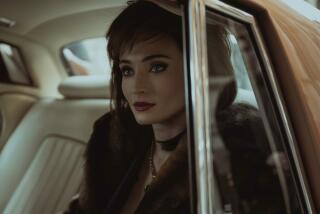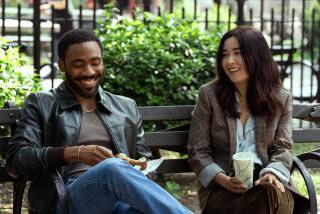Gallantly trying to get beyond the heroine’s bun and long skirt
- Share via
Unto every generation, it seems, comes a new “Jane Eyre.” (Sometimes you do not have to wait even that long.) The latest, a BBC production premiering domestically Sunday night on “Masterpiece Theatre,” comes a scant decade after an ITV adaptation of the Charlotte Bronte novel, seen here on A&E;, as well as a more or less contemporaneous theatrical version by Franco Zeffirelli.
Directed by Susanna White, who also made the recent miniseries of Charles Dickens’ “Bleak House,” and written by Sandy Welch, who adapted “Our Mutual Friend” in 1998, it has the verve of neither -- though, to be fair, Dickens makes it easy on an adapter, filling his books with marvelous set pieces and outsized characters and lines ready to be spoken. For all its gothic atmosphere and heavy breathing, “Jane Eyre” (subtitled “An Autobiography”) is fundamentally a novel of interior states: of the discovery of sympathies, the growth of affections, the ripening of the soul and the overcoming of impediments to the marriage of true minds.
Given that most every screen translation leaves out much and invents at least a little, it’s probably best to watch any “Jane Eyre” with no knowledge of the source -- or no memory of it, anyway -- so as to be surprised, say, when Mr. Rochester rides up out of the mist, and wonder just what made those noises in the hallway, and believe that Jane might possibly go off to India (unaccountably changed here to Africa) with St. John Rivers instead of heading back to Thornfield Hall.
There is the usual quorum of elisions, compressions, rearrangements and additions. White and Welch fairly race through Jane’s early years under her hateful aunt, Mrs. Reed (the usually fetching Tara Fitzgerald, hardly recognizable), and at the Lowood School, spending just enough time there to establish that Jane was a lively, unconventional little girl with much to overcome. (Ugly relations, cold institution -- we know the shorthand by now.)
All haste is made to get Jane to Rochester and their will-she-won’t-he whirlings.
A more than usually steamy “Jane Eyre,” it seems to have been made especially to appeal to viewers whose week peaks with “Grey’s Anatomy.” There is a lot of Mr. Rochester in Dr. McDreamy. And yet, despite these passages, the production overall comes off as a little dry and dutiful.
Toby Stephens, who played the villain in the James Bond film “Die Another Day,” Kim Philby in “Cambridge Spies” and the lovelorn but indolent Duke Orsino in the Trevor Nunn-directed “Twelfth Night,” would seem made to order for the dissipated, aristocratic, romantic Mr. Rochester (a man with a skeleton in the closet, or rather a madwoman in a tower). It is not entirely his fault that his Rochester seems at times merely cranky and perverse rather than storm-tossed and tortured; Bronte must bear some of the blame.
The reader, who spends the whole book in Jane’s mind, may trust or not her protestations of plainness, but on film it’s been deemed necessary to underscore her obvious if irregular beauty, the part having been played by such hardly mousy little things as Joan Fontaine, Susannah York, Samantha Morton and Charlotte Gainsbourg. Ruth Wilson, still fresh enough to be called a “newcomer,” follows in that tradition -- she even gets a Miss Jones Who Is Beautiful Without Her Glasses moment as, in the first flush of requited love, she literally lets her hair down.
Wilson does well portraying Jane’s passionate nature and her hard-won discipline. The character is sufficiently self-determining, within the possibilities of her time, to merit the book’s proto-feminist reputation -- a “resolute, wild, free thing,” she calls herself -- but it is also a great-great-great-grandmother of the modern bodice ripper (dark master, humble governess). Jane may be plain, but she winds up not just with a man, but a choice of them -- which is doubtless what makes this story so perennially attractive to filmmakers. (Bronte’s darker, and greater, novel “Villette” has been filmed, as far as I can make out, only once.)
Beneath all its subtleties and discourse, it’s Cinderella back again: All the soot in the world can’t hide a born princess.
*
‘Masterpiece Theatre: Jane Eyre’
Where: PBS
When: 9 to 11 p.m. Sunday. Also Jan. 28.
Rating: TV-PG (may be unsuitable for young children)
More to Read
The complete guide to home viewing
Get Screen Gab for everything about the TV shows and streaming movies everyone’s talking about.
You may occasionally receive promotional content from the Los Angeles Times.







